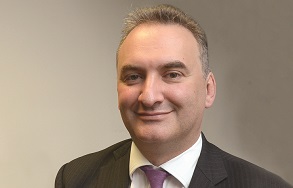Interim financial support increases
This interim support is for trusts in financial difficulties and aims to provide some stability to ensure the continued delivery of services while a recovery plan is developed. Most interim support is provided as interest-bearing loans to incentivise financial recovery – in a document published alongside its 2017/18 annual report and accounts the Department said that, as in 2016/17, it did not issue interim revenue public dividend capital (PDC) in 2017/18.
The document outlines the financial assistance given to trusts during the year. As well as the interim revenue support, this includes capital and revenue loans issued during the normal course of business; various capital funding schemes (such as for A&E upgrades); and long-term financing to aid the implementation of a recovery plan.
Trusts drew down more than £2.8bn in interim revenue support in 2017/18, but repaid almost £200m – when the outstanding aggregate loan amount from 2016/17 is taken into account (£4.7bn), trusts owed more than £7.3bn at the end of 2017/18.
The Department annual report and accounts confirmed the health and care system was broadly in balance at the end of 2017/18. Permanent secretary Chris Wormald (pictured) said this had been achieved despite a challenging year. Some key waiting time targets had been missed and, with additional funding secured, the service had already started to focus on recovering performance in these areas.
He added: ‘Long-term sustainable improvements, maximising resources, minimising waste to improve services will be essential to balance the health and care needs over the coming years while maintaining financial balance.’
In a section on the Department’s performance against its £121bn revenue departmental expenditure limit (DEL), the annual report said there was an overall underspend of around £700m.
Providers’ aggregate deficit stood at £991m at year-end (factoring in the £1.8bn sustainability and transformation fund) – around £500m more than planned. The unaudited aggregate provider deficit published by NHS Improvement at the end of May was £960m. Clinical commissioning groups overspent their allocations by around £200m following the release of the CCG portion of the risk reserve.
However, NHS England savings and central reserves produced an overall £692m revenue DEL underspend across the Department’s group.
Related content
We are excited to bring you a fun packed Eastern Branch Conference in 2025 over three days.
This event is for those that will benefit from an overview of costing in the NHS or those new to costing and will cover why we cost and the processes.